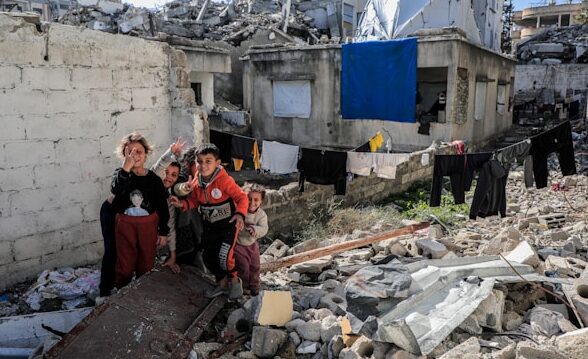Top UN bodies and aid groups refuse to support the new plan, accusing Israel of using aid as a military tool
The United Nations and all major aid organisations operating in Gaza have issued a rare joint rebuke, declaring they will not cooperate with a U.S.-Israeli plan to restart humanitarian aid deliveries to the war-torn enclave. In a joint statement on Sunday, they warned that the proposed system violates basic humanitarian principles and risks endangering both civilians and aid workers.
The plan, revealed last week by Axios, centres on a new international foundation—reportedly backed by Western governments and philanthropic donors—to distribute aid independently of Hamas, the de facto authority in Gaza. Under the scheme, designated compounds would be set up where Palestinian families could collect weekly rations, overseen by the Israeli military and international partners.
But aid leaders flatly rejected the model, accusing Israel of attempting to dismantle the current UN-led distribution network and replace it with one controlled by military interests.
“It contravenes fundamental humanitarian principles and appears designed to reinforce control over life-sustaining items as a pressure tactic,” the joint statement read. “It is dangerous, driving civilians into militarised zones to collect rations, threatening lives—including those of humanitarian workers—while further entrenching forced displacement.”
Since the collapse of a temporary ceasefire two months ago, Israel has blocked nearly all deliveries of food, water, and medicine into Gaza. According to UN agencies, supplies are expected to run out in mere days, with Israeli officials estimating a complete depletion within four weeks. Meanwhile, Israeli airstrikes have resumed, and the country’s security cabinet on Sunday authorised mobilisation of tens of thousands of reservists, signalling a wider ground offensive.
The new aid plan, Israeli officials argue, offers a pragmatic solution to restart aid flow without benefiting Hamas. A source involved in the planning insisted the foundation would be independent of the Israeli military. Gazans are suffering. We believe urgent action is needed. Our goal is to adhere to the humanitarian principles of humanity, neutrality, impartiality, and independence,” the source said.
Embed from Getty ImagesYet the UN remains unconvinced. Secretary-General António Guterres and Emergency Relief Coordinator Martin Griffiths both rejected participation in any model that does not guarantee neutrality and independence. “We will not participate in any scheme that does not adhere to the global humanitarian principles,” the UN reiterated.
The refusal has thrown the plan into jeopardy. Without UN backing, donor nations are unlikely to fund the initiative, further delaying much-needed aid to Gaza’s desperate population. Aid groups also noted the plan’s logistics would exclude the most vulnerable, including the elderly, disabled, and those unable to safely reach distribution centres due to ongoing violence.
The U.S. State Department expressed disappointment over the rejection. “Folks found a creative, outside-the-box solution to a difficult problem. This should be celebrated, not condemned,” a department official said. “It’s a bad optic for these groups to be seen siding with Hamas.”
However, humanitarian leaders dismissed the accusation, insisting their opposition is rooted in decades of international law. “This is not about politics,” one senior UN official said. “It’s about protecting civilian lives and preserving the integrity of humanitarian aid.”
Conditions in Gaza have deteriorated sharply since aid was halted. Civilians, displaced multiple times by bombings, now face lawlessness, looting, and a total breakdown of services. The humanitarian crisis has deepened with each passing day of inaction.
While talks may continue behind the scenes, the public standoff between Israel, the U.S., and the UN underscores the intense disagreement over how aid should be delivered during wartime—and who gets to decide.
